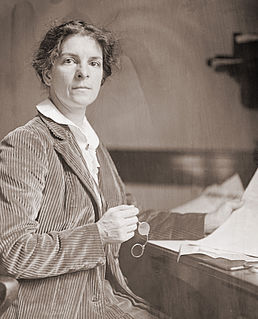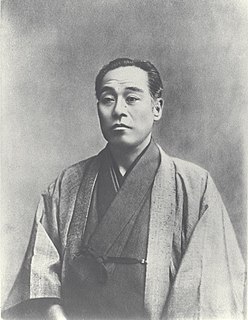A Quote by Andrew Carnegie
The man of business knows that only by years of patient, unremitting attention to affairs can he earn his reward, which is the result, not of chance, but of well-devised means for the attainment of ends.
Related Quotes
The end is what you want, the means is how you get it. Whenever we think about social change, the question of means and ends arises. The man of action views the issue of means and ends in pragmatic and strategic terms. He has no other problem; he thinks only of his actual resources and the possibilities of various choices of action. He asks of ends only whether they are achievable and worth the cost; of means, only whether they will work. ... The real arena is corrupt and bloody.
The single most important thing to remember about any enterprise is that results exist only on the outside.The result of a business is a satisfied customer. The result of a hospital is a satisfied patient. The result of a school is a student who has learned something and puts it to work ten years later. Inside an enterprise there are only costs.
Economics is a theoretical science and as such abstains from any judgement of value. It is not its task to tell people what ends they should aim at. It is a science of the means to be applied for attainment of ends chosen, not, to be sure, a science of the choosing of ends. Ultimate decisions, the valuations and the choosing of ends, are beyond the scope of any science. Science never tells a man how he should act; it merely shows how a man must act if he wants to attain definite ends.
The child knows only that he engages in play because it is enjoyable. He isn't aware of his need to play--a need which has its source in the pressure of unsolved problems. Nor does he know that his pleasure in playing comes from a deep sense of well-being that is the direct result of feeling in control of things, in contrast to the rest of his life, which is managed by his parents or other adults.
A man is likely to mind his own business when it is worth minding. When it is not, he takes his mind off his own meaningless affairs by minding other people's business.This minding of other people's business expresses itself in gossip, snooping and meddling, and also in feverish interest in communal, national and racial affairs. In running away from ourselves we either fall on our neighbor's shoulder or fly at his throat.
A learned parson, rusting in his cell at Oxford or Cambridge, will reason admirably well upon the nature of man; will profoundly analyze the head, the heart, the reason, the will, the passions, the senses, the sentiments, and all those subdivisions of we know not what ; and yet, unfortunately, he knows nothing of man... He views man as he does colours in Sir Isaac Newton's prism, where only the capital ones are seen; but an experienced dyer knows all their various shades and gradations, together with the result of their several mixtures.
In its broad sense, civilization means not only comfort in daily necessities but also the refining of knowledge and the cultivation of virtue so as to elevate human life to a higher plane... It refers to the attainment of both material well-being and the elevation of the human spirit, [but] since what produces man's well-being and refinement is knowledge and virtue, civilization ultimately means the progress of man's knowledge and virtue.
Whatever the situation may be, in the recollection of death there is reward and merit. For even the man engrossed in the world benefits from it by acquiring an aversion to this world, since it spoils his contentment and the fullness of his pleasure; and everything which spoils for man his pleasures and his appetites is one of the means of deliverance.
A man’s ignorance sometimes is not only useful, but beautiful - while his knowledge, so called, is oftentimes worse than useless, besides being ugly. Which is the best man to deal with - he who knows nothing about a subject, and, what is extremely rare, knows that he knows nothing, or he who really knows something about it, but thinks that he knows all?
The new "ambiguity" means, in a way adjudged favorable to literary, poetic, intellectually and psychologically well-devised and praiseworthily executed linguistic performance, uncertainty of meaning, or difficulty for the interpreter in identifying just what the meaning in question is: it means the old meanings of ambiguity with a difference. It means uncertainty of meaning (of a word or combination of words) purposefully incorporated in a literary composition for the attainment of the utmost possible variety of meaning-play compressible within the verbal limits of the composition.

































